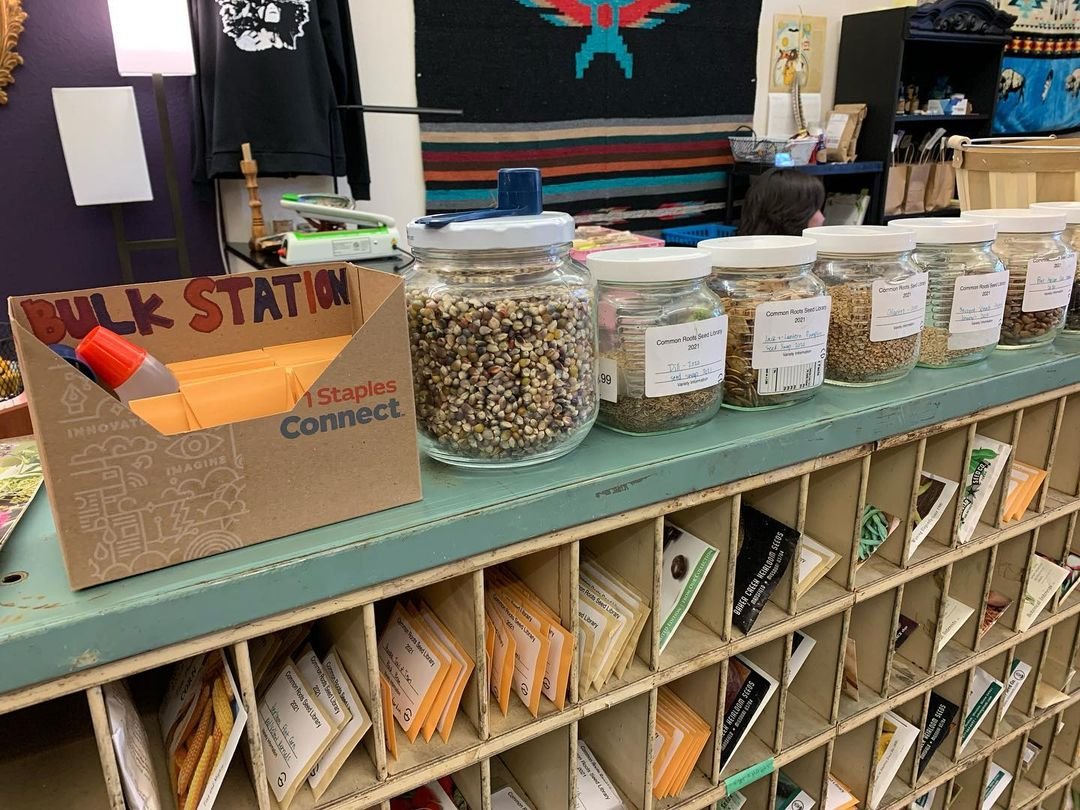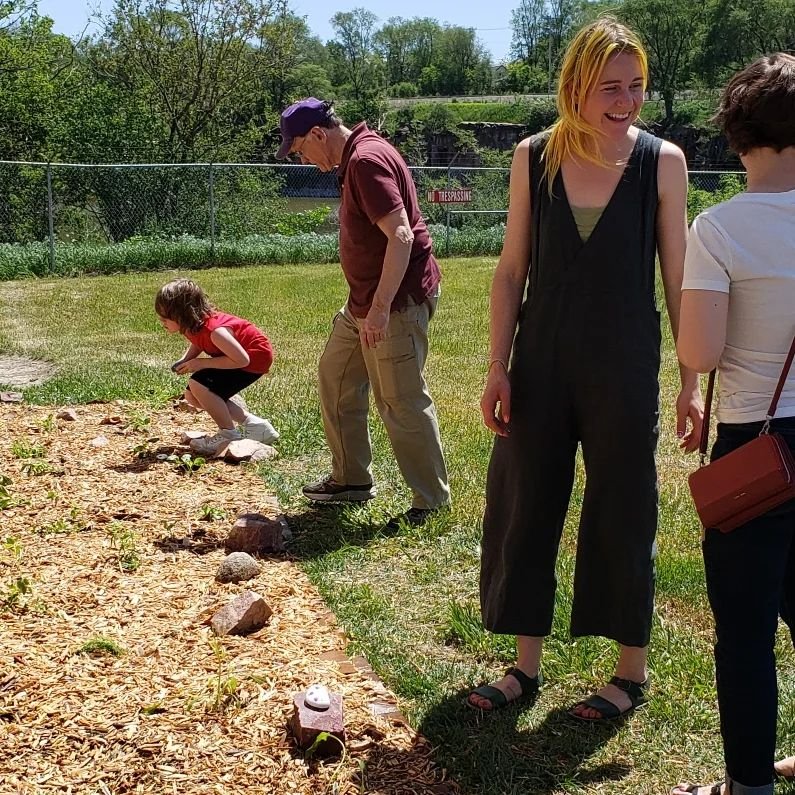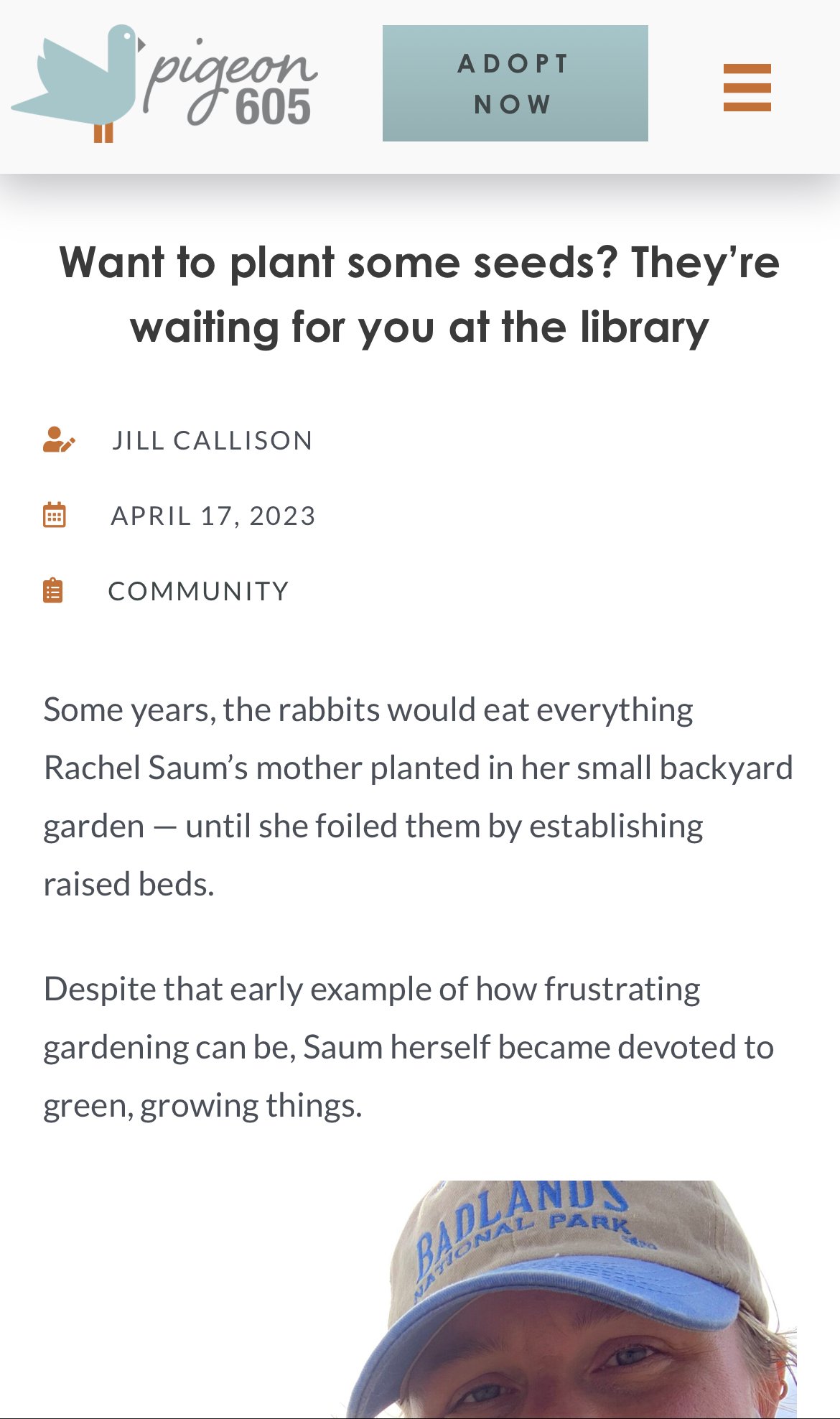
Common Roots Seed Library
What is a seed library?
A seed library is a type of library that lends seeds to individuals or communities for growing plants. It operates on the principle of borrowing and returning seeds, similar to how traditional libraries lend books. Seed libraries aim to promote biodiversity, preserve heirloom or locally adapted plant varieties, and encourage sustainable gardening practices.
Seed libraries typically work by allowing individuals to "borrow" seeds for planting in their gardens. Once the plants grow and produce seeds, borrowers are encouraged to "return" a portion of the harvested seeds back to the library, replenishing the seed stock for future borrowers. This creates a cycle of seed sharing and preservation, as well as community engagement and education around gardening and sustainable agriculture.
Seed libraries can be found in various settings, such as public libraries, community centers, schools, or non-profit organizations. They may focus on specific types of plants, such as vegetables, flowers, or herbs, or cater to specific regions or climates to promote local biodiversity and resilience. Some seed libraries also offer educational resources, workshops, or events related to seed saving, gardening, and ecological conservation.
Seed libraries play an important role in promoting seed diversity and food sovereignty. They often prioritize heirloom, open-pollinated, or locally adapted plant varieties that are not commonly available in commercial seed markets. This helps to preserve genetic diversity, prevent the loss of traditional plant knowledge, and promote more sustainable and resilient gardening practices that do not rely heavily on hybrid or genetically modified seeds.
Seed libraries also promote community engagement and education around gardening, agriculture, and environmental stewardship. They provide opportunities for people to learn about plant biology, seed saving techniques, and the importance of biodiversity in food systems. Seed libraries can also foster community connections, knowledge sharing, and cultural heritage preservation through the exchange of seeds and gardening practices among members of the community.
In summary, a seed library is a unique type of library that focuses on lending seeds for planting, promoting seed diversity, sustainable gardening practices, and community engagement. It serves as a valuable resource for individuals and communities interested in gardening, seed saving, and environmental conservation. So, whether you are an experienced gardener or a beginner, a seed library can be a wonderful place to access diverse and locally adapted plant varieties, learn about gardening practices, and connect with like-minded individuals in your community.




Seed Saving
Saving seeds is an important practice for protecting local ecology and promoting biodiversity. Here are some reasons why people save seeds and how it helps protect the local ecology:
Preserving genetic diversity: Seed saving helps to preserve the genetic diversity of plants, which is crucial for maintaining resilient and healthy ecosystems. Plant populations with high genetic diversity are better able to adapt to changing environmental conditions, such as climate change, disease outbreaks, or pest pressures. By saving seeds of different plant varieties, farmers, gardeners, and communities can help protect rare, heirloom, or locally adapted plant varieties that may not be available in commercial seed markets, and thereby maintain the diversity of plants in their local ecology.
Promoting locally adapted plants: Saving seeds of locally adapted plant varieties helps to promote plants that are well-suited to the local climate, soil, and other environmental conditions. These plants have evolved over time to thrive in specific regions, and their genetic traits are better suited for local ecosystems. By saving and replanting locally adapted seeds, farmers and gardeners can help maintain the resilience of local plants and ecosystems, reduce the dependence on external seed sources, and promote sustainable agriculture practices that are tailored to the local environment.
Supporting pollinators and beneficial insects: Many plants rely on pollinators, such as bees, butterflies, and other insects, for pollination and reproduction. Saving and planting diverse plant varieties can provide food and habitat for pollinators and beneficial insects, which are essential for the health and resilience of local ecosystems. By promoting a diverse range of plant species through seed saving, people can help support pollinators and other beneficial insects, and in turn, protect the local ecology.
Preventing genetic erosion: Commercial seed markets are often dominated by a narrow range of plant varieties that are widely distributed and promoted for their high yield, uniformity, and marketability. This can lead to genetic erosion, as traditional, heirloom, and locally adapted plant varieties are displaced or lost. Seed saving helps to prevent genetic erosion by preserving and promoting diverse plant varieties that may not be commercially viable but are important for maintaining the genetic diversity and resilience of local ecosystems.
Promoting sustainable agriculture practices: Seed saving is often associated with sustainable agriculture practices, such as agroecology, organic farming, and regenerative agriculture. These practices promote ecological stewardship, biodiversity, and resilience, and often rely on the use of diverse, locally adapted plant varieties. By saving seeds and using them in sustainable agriculture practices, people can contribute to the protection of local ecology and promote more sustainable and resilient food systems.
In summary, saving seeds is a crucial practice for protecting local ecology and promoting biodiversity. It helps to preserve genetic diversity, promote locally adapted plants, support pollinators and beneficial insects, prevent genetic erosion, and promote sustainable agriculture practices. Seed saving is a vital tool for farmers, gardeners, and communities to protect and sustain local ecosystems and contribute to a more resilient and sustainable food system. So, whether you are a farmer, gardener, or community member, seed saving can be a meaningful practice for protecting the local ecology and promoting biodiversity.
In the news…

